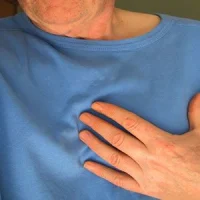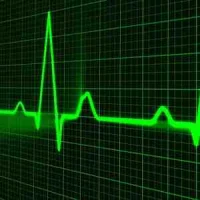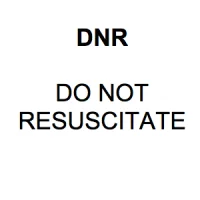A new laboratory study by the University of Michigan Medical School has shown that, in the moments just before death, a storm of brain activity erupting as the heart deteriorates can play a surprising destabilising role in heart function.
“Despite the loss of consciousness and absence of signs of life, internally the brain exhibits sustained, organised activity and increased communication with the heart, which one may guess is an effort to save the heart,” said the study's senior author Jimo Borjigin, PhD, associate professor of neurology and associate professor of molecular and integrative physiology.
However the brain signalling at near-death may, in fact, accelerate cardiac demise, according to results of the study published online in PNAS Early Edition.
Researchers with backgrounds in neuroscience, physiology, cardiology, engineering, chemistry, and pharmacology looked at the mechanism by which the heart of a healthy person ceases to function within just a few minutes without oxygen.
For the study, performed in rats, Professor Borjigin's team simultaneously examined the heart and brain during experimental asphyxiation and documented an immediate release of more than a dozen neurochemicals, along with an activation of brain-heart connectivity.
Following a steep fall of the heart rate, brain signals strongly synchronised with the heart rhythm, as visualised beat-by-beat using a new technology developed in the Borjigin laboratory called electrocardiomatrix.
While the study examined asphyxia-induced cardiac arrest, sudden cardiac death can also follow fatal cardiac arrhythmias, ischaemic stroke, traumatic brain injury, brain haemorrhage and epilepsy, according to the research team.
Professor Borjigin et al. noted that blocking the brain’s outflow significantly delayed ventricular fibrillation, in which the lower chambers of the heart quiver and the heart cannot pump any blood. This is the most serious cardiac rhythm disturbance, the team said.
This near-death brain signalling may be targeted to help cardiac arrest patients survive. Most of the more than 400,000 Americans who suffer cardiac arrest at home, at work or in public die without immediate help.
According to Prof. Borjigin, “The study suggests that a pharmacological blockade of the brain’s electrical connections to the heart during cardiac arrest may improve the chances of survival in cardiac arrest patients.”
In previous work, Prof. Borjigin and colleagues demonstrated significant organised activation of the brain in animals undergoing cardiac arrest. Their new study provides a neurochemical foundation for the surge in brain activity and a brain-heart connectivity that may be targeted to lengthen detectable brain activity.
Source: University of Michigan Health System
Image Credit: University of Michigan Health System
“Despite the loss of consciousness and absence of signs of life, internally the brain exhibits sustained, organised activity and increased communication with the heart, which one may guess is an effort to save the heart,” said the study's senior author Jimo Borjigin, PhD, associate professor of neurology and associate professor of molecular and integrative physiology.
However the brain signalling at near-death may, in fact, accelerate cardiac demise, according to results of the study published online in PNAS Early Edition.
Researchers with backgrounds in neuroscience, physiology, cardiology, engineering, chemistry, and pharmacology looked at the mechanism by which the heart of a healthy person ceases to function within just a few minutes without oxygen.
For the study, performed in rats, Professor Borjigin's team simultaneously examined the heart and brain during experimental asphyxiation and documented an immediate release of more than a dozen neurochemicals, along with an activation of brain-heart connectivity.
Following a steep fall of the heart rate, brain signals strongly synchronised with the heart rhythm, as visualised beat-by-beat using a new technology developed in the Borjigin laboratory called electrocardiomatrix.
While the study examined asphyxia-induced cardiac arrest, sudden cardiac death can also follow fatal cardiac arrhythmias, ischaemic stroke, traumatic brain injury, brain haemorrhage and epilepsy, according to the research team.
Professor Borjigin et al. noted that blocking the brain’s outflow significantly delayed ventricular fibrillation, in which the lower chambers of the heart quiver and the heart cannot pump any blood. This is the most serious cardiac rhythm disturbance, the team said.
This near-death brain signalling may be targeted to help cardiac arrest patients survive. Most of the more than 400,000 Americans who suffer cardiac arrest at home, at work or in public die without immediate help.
According to Prof. Borjigin, “The study suggests that a pharmacological blockade of the brain’s electrical connections to the heart during cardiac arrest may improve the chances of survival in cardiac arrest patients.”
In previous work, Prof. Borjigin and colleagues demonstrated significant organised activation of the brain in animals undergoing cardiac arrest. Their new study provides a neurochemical foundation for the surge in brain activity and a brain-heart connectivity that may be targeted to lengthen detectable brain activity.
Source: University of Michigan Health System
Image Credit: University of Michigan Health System
Latest Articles
cardiac arrest, ventricular arrhythmia, cardiac death, brain signalling, asphyxiation
A new laboratory study by the University of Michigan Medical School has shown that, in the moments just before death, a storm of brain activity erupting as...










